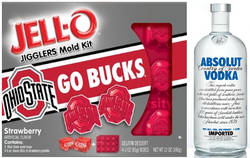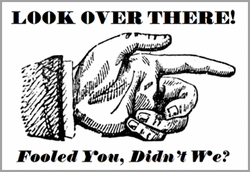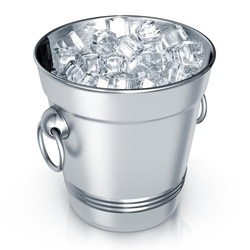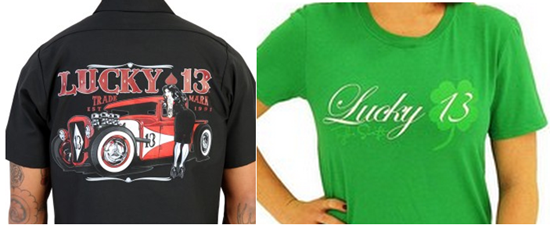|
Some woman writes a story about her life in a remote village in the Andeas, a story about deep sibling love, betrayal, true love, and tragedy that goes to the root of the love shared by two close sisters. Sounds like a lot of other stories you have read, doesn’t it? It may even sound like Frozen, or at least that’s what one author, Isabella Tanikumi, thinks (yeah, I’d never heard of her, either). She has filed suit against Disney claiming $250 million in damages. The claim? That Disney took the theme, characters, and plot from a book she wrote about her life.
0 Comments
Taylor Swift is probably asking herself the same question that Clint Eastwood famously asked in Dirty Harry. At least that’s what her attorneys might have told her when she sought to use LUCKY 13, a little-known trademark for a boutique line of clothing, on greeting cards and clothing items, of all things. LUCKY 13 belongs to a company called Blue Sphere. While many people may not have heard of LUCKY 13, Blue Sphere claims to have some heft behind the name, having done business in Southern California for over 20, and having a robust licensing program and 6 federally registered trademarks to back it up. Oh yeah, the company has also participated in a lot of charitable activities by donating retail items to different causes. All of which was done (presumably) to increase the amount of goodwill (the intangible goodies associated with a trademark, not the store) associated with Lucky 13. So why did Taylor Swift (and American Heritage, a premier greeting card company) feel the need to use LUCKY 13 and risk the ire of Blue Sphere?
 Thanks to the "TaxProf" Blog for this Pic. Thanks to the "TaxProf" Blog for this Pic. Jell-O, it’s the fun way to enjoy an after-school snack. With Bill Cosby sporting a bow-tie and tuxedo graced by similarly-dressed kids stuffing their faces with gelatin molds in the shapes of dinosaurs and giant lips, how could you resist buying a box or two on your next trip down the aisle at Wal-Mart? After all, it’s the snack that’s so easy to make “a Child Can Prepare it.” Jiggling fruit gel molded into funny shapes. Good, clean family fun, right? At least, that’s the image that Jell-O enjoyed for the first 100 years of its existence. As many who enjoy a good party now and then can tell you, the demographic for Jell-O has shifted ever so slightly from housewives and dessert-loving kids to college students, ravers, and club hoppers. Ergo, people who enjoy preparing a libations in the form of gelatinous molds. With such a shift you would think that Jell-O may have noticed, and may have seized on the opportunity to correct a trend that promises to potentially take the Jell-O trademark into the abyss of genericide (I know, I use that term a lot, but the ominous nature of the topic deserves repeating). Instead, it looks like they are doubling down on a co-branding initiative with various universities across the U.S. to promote Jell-O molding kits that include university molds. As a well-known trademark attorney has remarked, there appears to be some double-speak about Jell-O’s true demographic here, or at least the real reason behind this initiative. After all, we know what most food items bearing university insignia (or any type of sports insignia) go hand-in-hand with one of America’s favorite pre-game past times: tailgating. And what does Jell-O and tailgating have in common? If you said most-creative mold making contests, you are wrong.  It seems like I have been getting a lot of questions (or hypotheticals) lately that involve pointing the finger at someone else. When I point the finger, I don’t mean in a whistleblower type of way but as in the type of finger-pointing that goes on when we are teenagers: “Johnny was out with his girlfriend until midnight. If he can do it, why can’t I?!”. These types of questions don’t begin with the premise that what you are doing may not be right and they are usually designed to uncover the mystery of another person’s tactics. You know the response that I got when I asked this question? “Son, you aren’t them. If they were our son, they aren’t living by our rules.” What is remarkable is this same type defense often arises when people talk about trademarks. The defense is usually brought up by a would-be infringer as a way to distract from the real issue (which is that they are infringing in the first place). The line usually goes something like this: I see so many other people misusing a trademark in the media and they aren’t called-out by ABC company. If they are getting away with it, I should be able to get away with it, too. This defense is about as effective as explaining away highway speeding by pointing at other people passing you by at 85 while a cop is writing you a ticket for going 75. The fact is some trademark owners have a lot of ground to cover.
 Millenials and other people who loved 90s music will probably recognize the title as a hit song from the eccentric musical group Primus. The phrase is an offshoot of the phrase “your name is mud” which, as I found out when doing some due diligence for this post, was not coined by Dr. Samuel Mudd, the man who treated John Wilkes Booth after his assassination of Lincoln. But I digress. Brand owners and people who have popularized their likeness have a strong interest in protecting their name from being drug through the mud. If a brand is allowed to be drug through the mud, be it by the brand owner itself or someone who the brand owner has allowed to use the trademark, the trademark may become so weak and unable to identify the original source that it is deemed to be lost. When this happens, all the goodwill that a brand owner has developed over the years and all the millions of dollars that went into building the brand are forfeited to the dreaded pit of abandoned trademarks.  The phrase “ice bucket challenge” has taken the world by storm this summer. Videos of people dousing themselves in ice water and nominating friends and family to do the same have inundated social media pages for millions, helping ALS reap the benefits in the form of millions of dollars of donations and increased awareness. I have personally done the ice bucket challenge and you can consider this blog post a virtual douse for the blog (electricity and water, in reality, don’t mix so well). ALS has clearly profited from this campaign that began as a way for golfers to raise money for assorted charities and any group that garnered that kind of attention could be expected to “press its luck” to find more success. This may have been the motivating factor behind the ALS Association’s decision earlier this month to file trademarks applications in the U.S. for the phrase “Ice Bucket Challenge” for services related to charitable giving. Is this attempt to capitalize on a wave of attention and recognition enough to throw ice water on charitable motives? Some of my fellow members of the bar seem to think so. Erik Pelton, a trademark attorney in the Washington D.C. area thinks that the attempt by ALS is a move that will prevent other people from using the trademark for charitable drives. |
What is generic?A generic trademark or brand is a mark that has become synonymous with the name of a product or service, usually without the trademark owners' intent. As a trademark owner, you want to avoid allowing your brand to become generic. Avoid it like the black plague. Mr. Anti-Generic HimselfThe brains behind this online operation and namespace for, er, cool name ideas is Justin Clark. He is an attorney at the J. Clark Law Firm and plays a mad drum solo from time to time. Archives
September 2019
Categories
All
DISCLAIMER
THIS SITE IS ONLY A BLOG AND IS NOT MEANT TO CONSTITUTE LEGAL ADVICE. IT IS ALSO PARTIALLY AN ADVERTISEMENT FOR LEGAL SERVICES BY ME, JUSTIN CLARK, ESQ. BUT I AM NOT YOUR LAWYER AND YOU ARE NOT MY CLIENT. ALSO, THE PHRASE "MR. ANTI-GENERIC" IS MEANT TO MEAN INTELLECTUAL ENTHUSIAST AND IS NOT MEANT TO SUGGEST THAT I HAVE CERTIFIED OR OTHER EXPERTISE IN ANY PARTICULAR FIELD OF LEGAL PRACTICE. |



 RSS Feed
RSS Feed